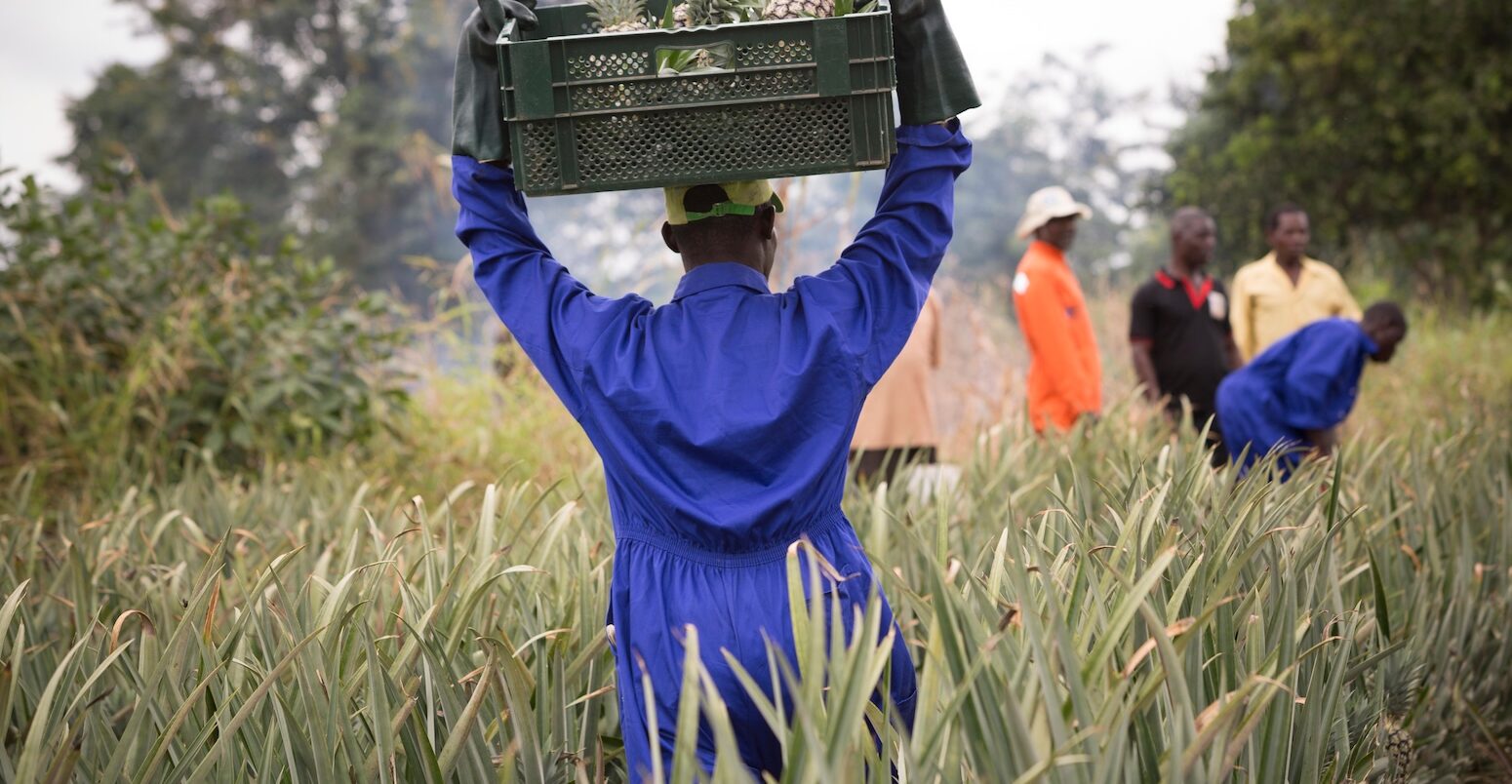
Guest post: How climate change is causing ‘ecological grief’ for farmers in Ghana

James Boafo
02.04.25
James Boafo
04.02.2025 | 12:45pmMental health problems induced, in part, by climate change are becoming increasingly common as the world warms, including the number of people experiencing “ecological grief”.
Ecological grief is one of the emotional responses seen in those living with the impacts of climate change-induced extreme weather events, such as floods, droughts or heatwaves.
In addition to crop failures due to extreme weather, individuals can experience ecological grief in response to declining yields and other changes, particularly where this directly impacts their lives and livelihoods.
This is particularly true of those in the global south, who are disproportionately affected by climate change, despite historically contributing less to the problem.
In a recent study of farmers in the Upper West Region of Ghana, I looked at how the grief caused by ecological loss can manifest in multiple ways, including causing mental health and psychosocial problems ranging from emotional distress to anxiety, depression, helplessness, hopelessness and sadness.
This research shows the potential for including ecological grief and other mental health impacts in the strategies of countries – especially those in the global south – looking for ways to adapt to climate change.
What is ecological grief?
As people increasingly live with the impact of climate change, research has tried to identify the impact it has on people’s lives.
For example, people who have been exposed to life-threatening extreme climate events are at a considerable risk of developing post-traumatic stress disorder as a result. Symptoms of this include flashbacks of the event, increased reactivity and avoidance of cues to the memory of the event.
In addition to this, several new concepts for climate change-induced distress have been introduced, to describe the long-term emotional consequences of anticipated or actual environmental changes.
Ecological grief refers to the mourning of ecological losses, including loss of species, ecosystems and meaningful landscapes, often shaped by acute or chronic ecological change.
The concept explains grief experienced in response to actual or anticipated losses in the natural world. This mourning of the loss of ecosystems, landscapes, species and ways of life has become a frequent lived experience for people around the world.
In 2018, a study published in Nature provided a conceptual clarification and understanding of climate change-induced ecological grief. It highlighted the implications of climate change-induced ecological loss on the mental health and wellbeing of people, as well as how people respond to ecological change that has both direct and indirect effects on the natural environment.
Ecological grief provides a conceptual understanding of the lived experiences of people who retain close living, working and cultural relationships to the natural environment.
Most of these people depend almost exclusively on the natural environment for livelihood needs, such as smallholder farmers who live in poor communities in the global south.
Research gap
Despite the effects of climate change on people in the global south, there is a dearth of understanding of ecological grief within the context of developing countries.
As such, paying closer attention to climate change-driven ecological grief within the context of developing countries could inform the design of climate change response strategies, decision-making, policies and interventions at the local level.
My current research aims to understand the lived experiences of climate change-induced ecological grief in the Upper West Region, Ghana’s most climate-vulnerable region.
It identifies climate change-induced ecological losses and how farmers in the region emotionally respond to those losses. The work highlights different non-economic experiences of climate change effects, focusing on emotional and mental health dimensions, which remain a relatively unexplored area.
Ecological grief in Ghana
Farmers’ understanding of ecological grief revolves around their emotional response to the loss of their livelihoods. This reaffirms farmers’ strong connection to their environment, on which their livelihoods are predicated.
First, farmers grieve the loss of their crops to extreme climate events, such as floods, droughts, heatwaves and climate-induced pests. The grief associated with the loss of crops has almost become perennial, as these extreme climate events have become more frequent.
In interviews undertaken as part of the research, farmers compared the feeling of losing their crops with the emotional pain of losing a loved one.
Second, farmers grieve the disappearance of their indigenous seeds and genetic resources.
Local seeds have been replaced with drought-resistant seed varieties, which farmers are encouraged to adopt to provide resilience in the face of the increasing impact of climate change.
Interview responses demonstrate that the adoption of the new seeds is causing the loss of farmers’ own seed varieties, which can be freely saved, exchanged and reused yearly. With the adoption of new seed varieties, farmers are losing their genetic resources and the culture associated with it. This is becoming a great source of worry and grief for farmers in the Upper West Region of Ghana, the research shows.
Third, farmers grieve the loss of their traditional ecological knowledge that was passed down to them by previous generations. This knowledge includes their ability to predict weather patterns, know farming seasons, determine soil types, know crop varieties and select seeds, among many other areas.
Without this knowledge system, farmers cannot practice agriculture as they have done in previous generations. The culture, values, norms and beliefs of farmers are tied to their traditional ecological knowledge, which often manifests through practice.
My research suggests that farmers are no longer able to predict weather patterns and farming seasons, an emerging trend that makes them feel as though they have lost their wisdom. This makes them worry.
Another source of grief for farmers is their inability to pass on their traditional ecological knowledge to their children, the research shows. This is because their ecological knowledge is becoming worthless as a result of climate change.
Way forward
My research explored ecological grief, an under-explored area of climate change-induced mental health problems in developing countries.
Indeed, farmers in developing countries are vulnerable to prolonged mental health problems if extreme climate events continue.
Moreover, a lack of alternative livelihoods and access to mental health services greatly increases farmers’ vulnerability to climate change-induced mental health problems.
This is compounded by a social culture that prohibits help-seeking.
Further research within these spaces would enable the design of targeted strategies and the provision of mental health services in rural areas.
-
Guest post: How climate change is causing ‘ecological grief’ for farmers in Ghana





